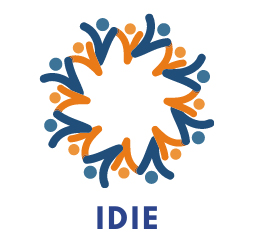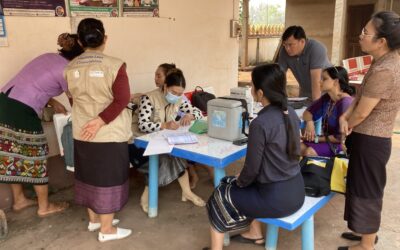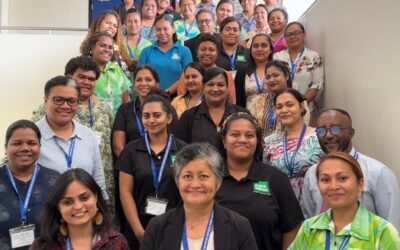Learning about how immunisation registers can improve vaccine uptake, help monitor coverage and vaccine effectiveness, and also support outbreak response was the topic of conversation at the three-day electronic immunisation registers study visit held in October.
Associate Professor Meru Sheel and the Infectious Diseases, Immunisation, and Emergencies (IDIE) group from the Sydney Infectious Diseases Institute and School of Public Health learnt about how the Australian Immunisation Register was establish and how it works.
The COVID-19 pandemic has resulted in vast expansion of digital health technologies, and many low- and middle-income countries are considering integration into routine immunisation programs.
However, much less has been done to strengthen and expand the health system to ensure maximum benefit of these tools is realised.
The program included in-depth lectures and case studies examination, field visits to health facilities and the public health unit, and live demonstrations of the system.

Through the study tour, the participants were able to:
- learn about the principles, processes and governance required to establish and realise the benefit of electronic immunisation registers;
- understand how the Australian system and networks work; and pluck out attributes and lessons relevant to their country, context and setting; and
- heard about the progress in other regions and low- and middle-income countries including the Latin American region.
Delegates shared their own countries’ journeys, experiences and challenges with immunisation registers to foster peer to peer learning, and applied the learnings from visit to develop action plans with concrete steps to improve their existing registers.
The visit was hosted in partnership with the Linked Immunisation Action Network, and the Institute for Health Policy in Sri Lanka; and was funded by Gavi, the Vaccine Alliance and the Department of Foreign Affairs and Trade to the Australian Regional Immunisation Alliance.



